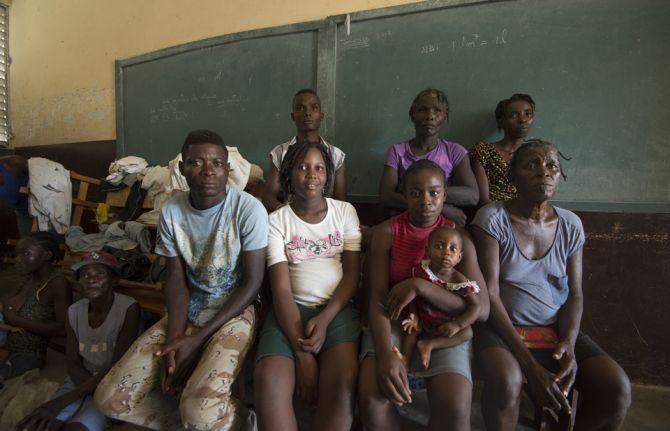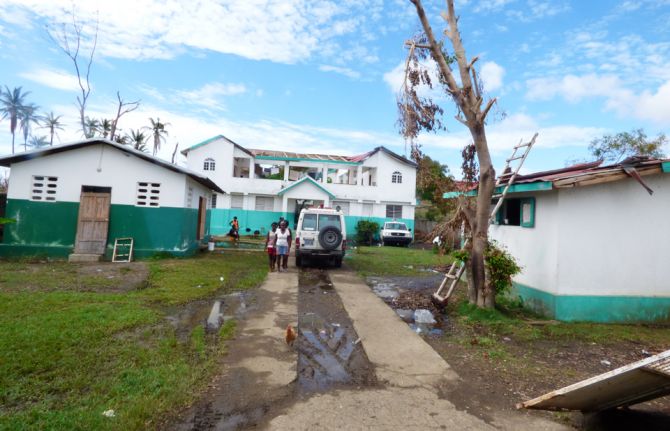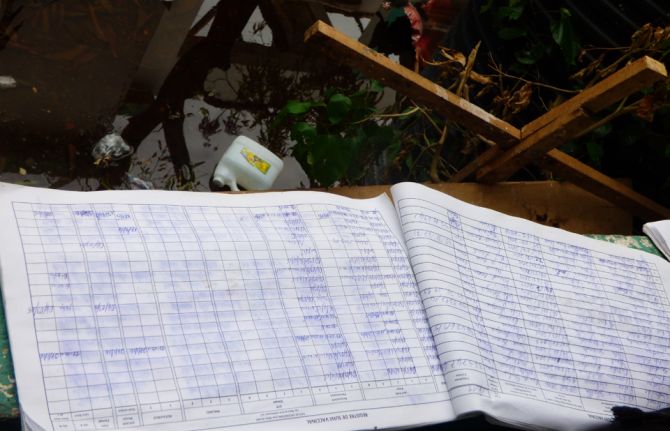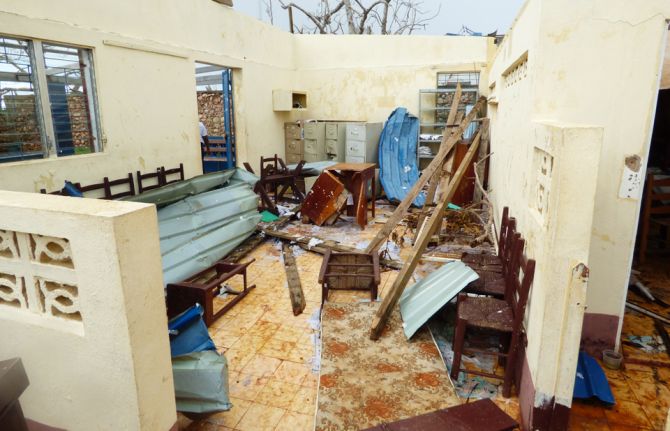




Feature Story
Ensuring HIV prevention and treatment services in Haiti are back on track after Hurricane Matthew
02 November 2016
02 November 2016 02 November 2016Haiti is regularly in the path of Atlantic Ocean storms, but Matthew was the most destructive hurricane in five decades and the country’s worst natural disaster since the devastating 2010 earthquake. According to the United Nations Office for the Coordination of Humanitarian Affairs, the hurricane killed 546 people, injured 438 and left thousands homeless. More than 141 000 displaced people are now living in temporary shelters.
Jasmin Désir, a community leader of the Union to Fight against Stigma and Discrimination, said the situation on the ground remains desperate for people with very few resources. It is even worse for many people living with HIV. He said their main concern now is being able to take antiretroviral medicines “when there is no food in sight.” Currently, 806 000 people need urgent food assistance.
Renel Julien, a community organizer living with HIV, mobilizes people living with HIV to get food and water. He thinks the emotional strain of dealing with the hurricane’s aftermath has taken a toll on many in the community.
Haiti’s entire health-care system was affected by the hurricane. Medical personnel and community health workers were unable to conduct home visits in some places. Most clinics were seriously damaged and some clinics and hospitals lost all their equipment, including generators, solar panels and computers. Antiretroviral medicines and other supplies were lost during the hurricane.
In the five most affected departments (Grand’Anse, South, South-East, Nippes and North-West), there were 13 994 people living with HIV and 37 functioning HIV treatment centres before Matthew.
According to UNAIDS Haiti, the hurricane has already affected HIV prevention, support, treatment and care services. Urgent programmes are needed to ensure that the current retention rate of people on treatment (between 60% and 80%) does not decline.
“One solution could be a community distribution system,” said Yafflo Ouattara, UNAIDS Country Director for Haiti. “In the short term, this might be the best option to reach people living with HIV who do not have access to their usual services.”
The UNAIDS country office in Haiti is currently supporting the national AIDS programme to gather information on the most affected departments and to explore alternatives for HIV treatment and care. Priorities include mapping treatment centres and reviewing the supply chain for antiretroviral medicines and other supplies.
Community leaders say marginalized groups, including gay men and other men who have sex with men, transgender people and sex workers, are even more vulnerable in these circumstances. Based on a preliminary assessment conducted by nongovernmental organizations in the areas most affected by the hurricane, stigma and discrimination has become a barrier to some people in need of assistance.
“Haiti was only just beginning the development phase to rebuild infrastructure following the 2010 earthquake that destroyed much of the country,” said Edner Boucicaut, Chair of Haiti’s Country Coordinating Mechanism for the Global Fund to Fight AIDS, Tuberculosis and Malaria and Country Director for Housing Works. “Having one disaster after another makes things more complicated than the typical emergency situation.”
César Núñez, Director of the UNAIDS Latin America and Caribbean Regional Support Team, said partners are working to ensure that the achievements made so far in the response to HIV are not diminished. “We are committed to ensuring that the excellent progress Haiti has made with respect to prevention and treatment is not reversed.”



